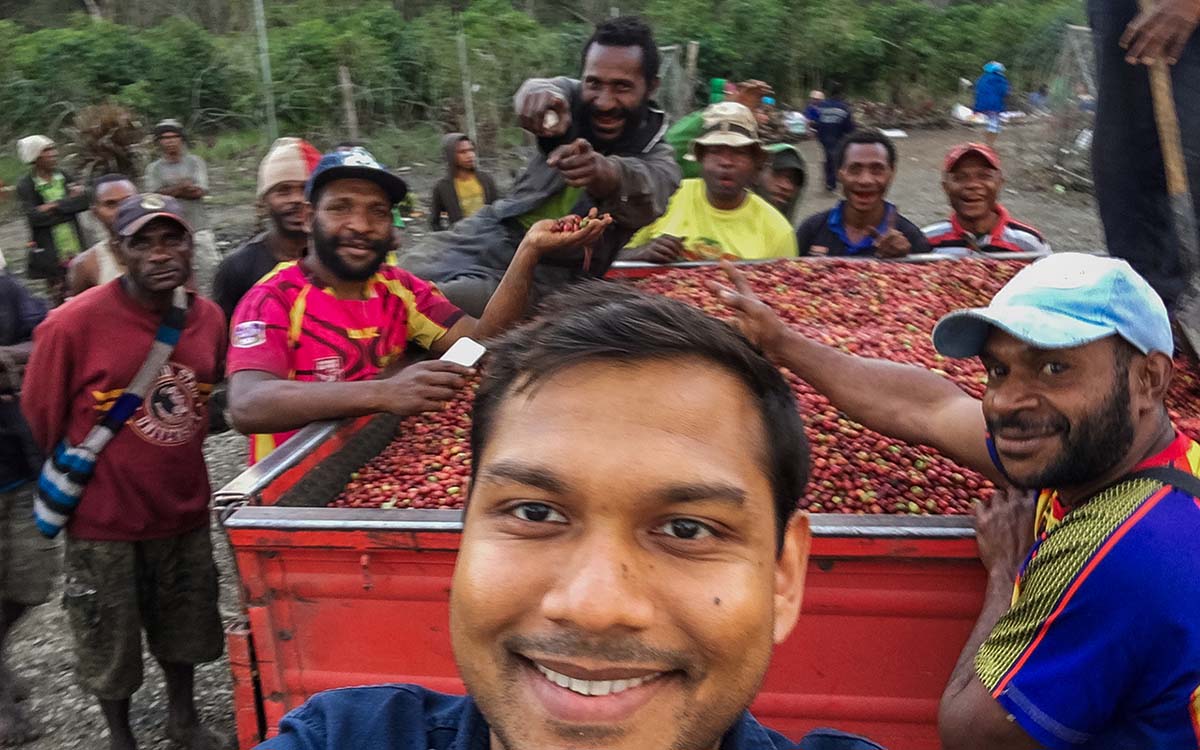
Coffee Culture in Papua New Guinea – Farm to Cup
Each month, we have an Origin of the Month to highlight the communities and farmers that contribute to our many coffees. Knowing the hard work and cultivation that is poured into every origin we roast will make your coffee experience even better.
The coffee culture in Papua New Guinea has been on the rise since the 1990s. Situated next to two of the coffee industry’s powerhouses, Australia (cafe scene) and Indonesia (coffee growing), Papua New Guinea was bound to develop its own unique coffee culture.
Coffee production used to make up almost half of the country’s total revenue from exported agricultural goods. However, this has slightly declined since then. One reason for this is a surge in small farm lots and small-scale processing by local farmers. Support for farmers has skyrocketed, while the overall exportation of coffee has decreased slightly.
The Rise of Specialty Coffee
Today, Papua New Guinea is a renewed wonder in the coffee production industry and our partners at Benchmark Coffee are helping lead coffee production for these farmers. Its climate is ideal for coffee growing with rich, fertile soil. Although commercial grade coffee was produced in the country as early as the 1920s, Papua New Guinea’s innovation in growing and production put them on the map for specialty coffee. It is flourishing with entrepreneurial innovation.
The country has peaked the interest of specialty coffee professionals and green buyers from all over. They recognize that smaller scale coffee production means higher quality. And that’s what we’re all about here at Baba Java Coffee!
Culture Impacts Coffee
Papua New Guinea has a very unique culture and infrastructure. Ancient tribal cultures still thrive in the vast mountains and valleys of the coffee-growing highlands. Agriculture developed independently in Papua New Guinea, without the influences of colonization like many other parts of the world. Many farmers also grow a plethora of other crops along with coffee beans.
Their infrastructure has also hindered the effectiveness of coffee production and sales at times, but big changes are underway. In both private and public sectors, there has been a real movement towards improving infrastructure and security. This will cultivate an even stronger coffee community in the country.
In order to understand the coffee industry in Papua New Guinea, you have to recognize the impact of tribal culture on the country. Papua New Guinea is home to dozens of cultures with over 800 languages spoken between them. The coffee industry still has many obstacles. In the near future, we believe they will be a coffee powerhouse. And we are committed to see farm to cup coffee cultures thrive!
Learn more about coffee cultures we support in China and Brazil.
An Exciting New Culture in the Industry
An enterprise that could potentially take place would be that of coffee hospitality. Places in Central America and Brazil have capitalized on strengthening infrastructure by opening resorts in the hillsides of coffee farms. This allows coffee education to ensue, growing the knowledge of not only the people who would stay at these resorts, but also the farmers and producers.
Culturally, this is a focal point coffee professionals are pursuing for Papua New Guinea. Culturally, consistency and quality control is everything for this budding coffee culture. While excellent and sustainable methods are being implemented with producing and logistics–the road to educational implementation is a must for the specialty coffee side of their production. Papua New Guinea’s new coffee culture is compared to others like Ethiopia and Brazil, so the excitement and anticipation is irresistible.
So, next time you drink our Papua New Guinea coffee, think about the stories, cultures, and hard workers who helped bring you that coffee in the first place. Coffee and culture are so closely intertwined and we’re grateful to be a part of it!
Check out all our carefully-roasted single-origin coffees here.
